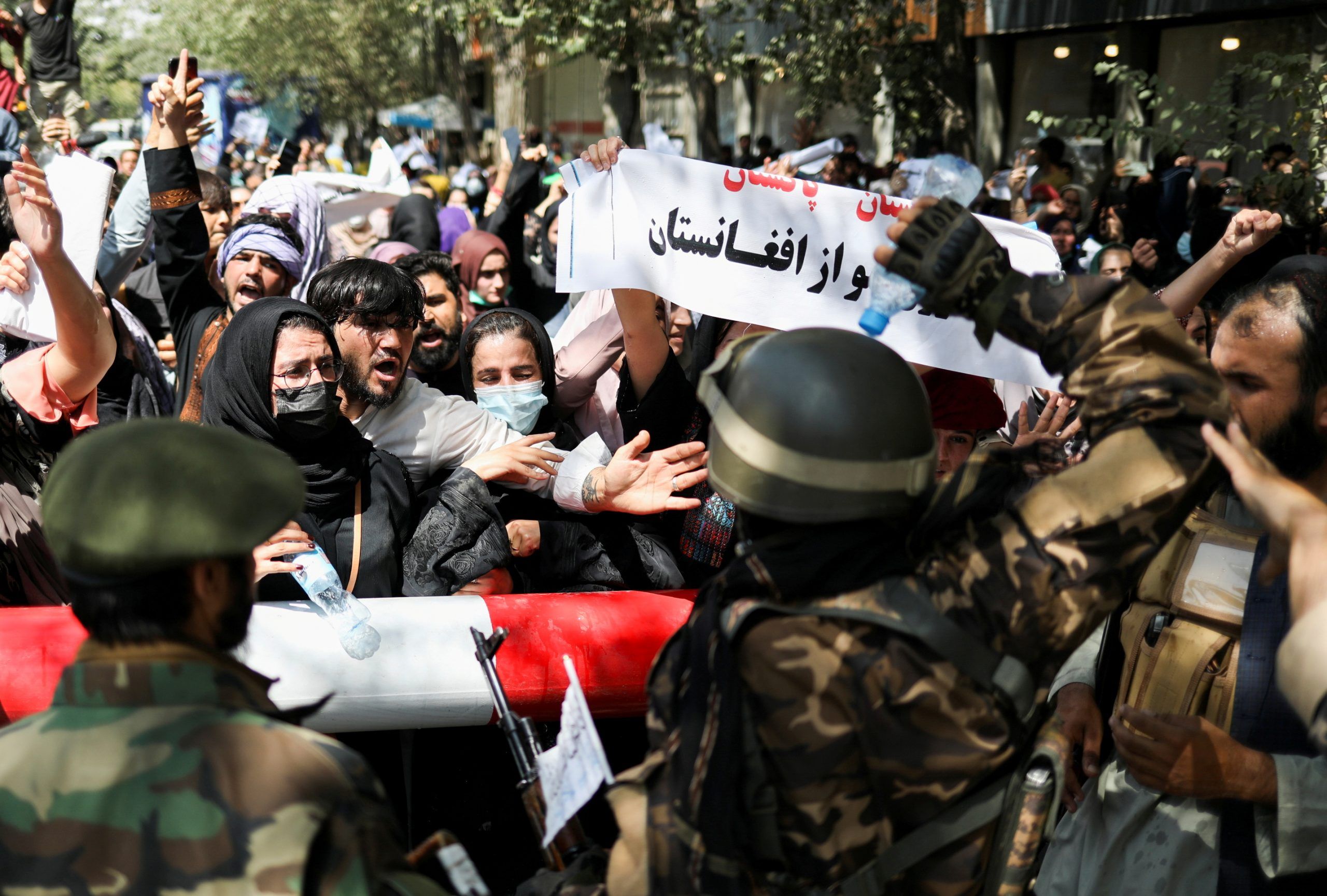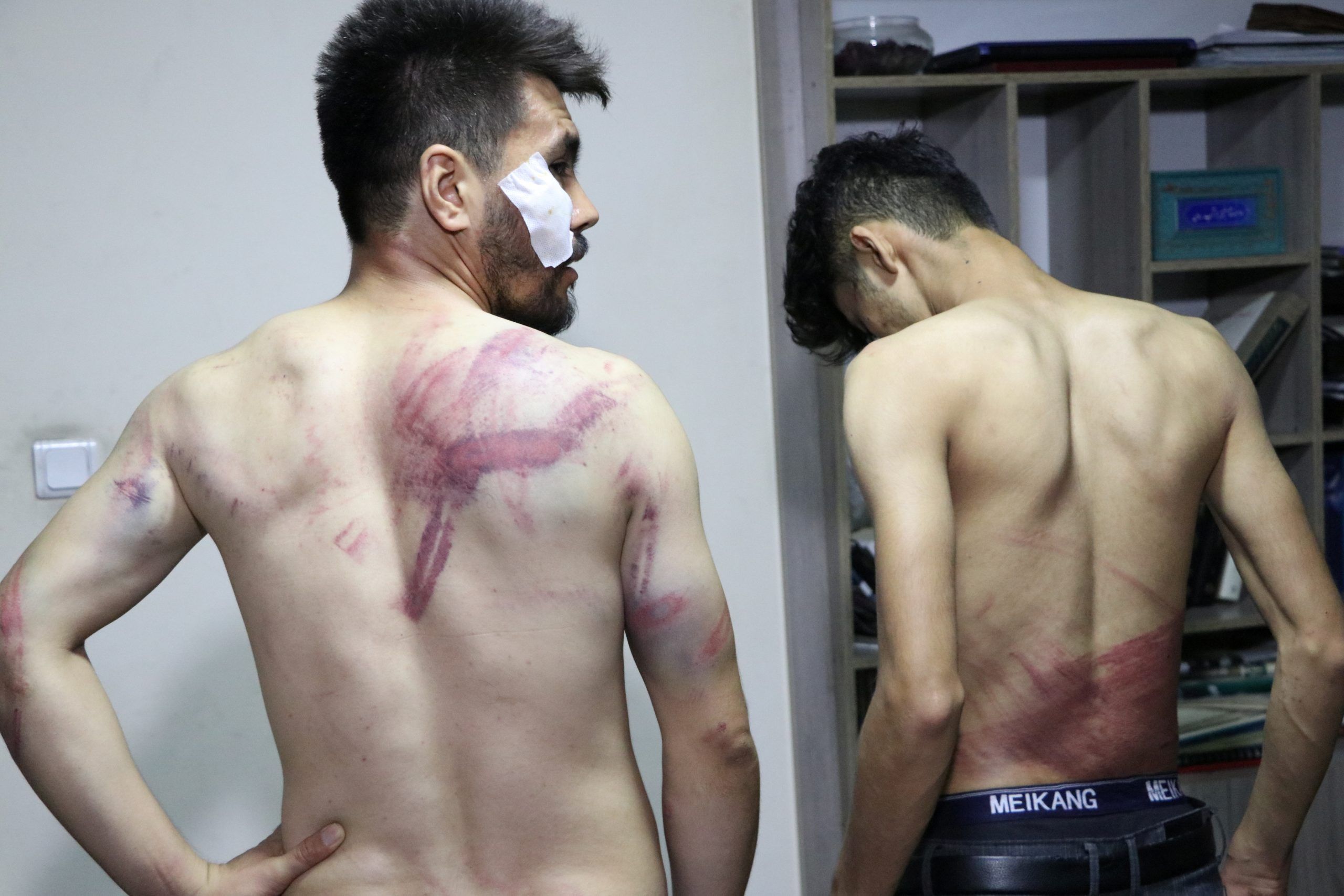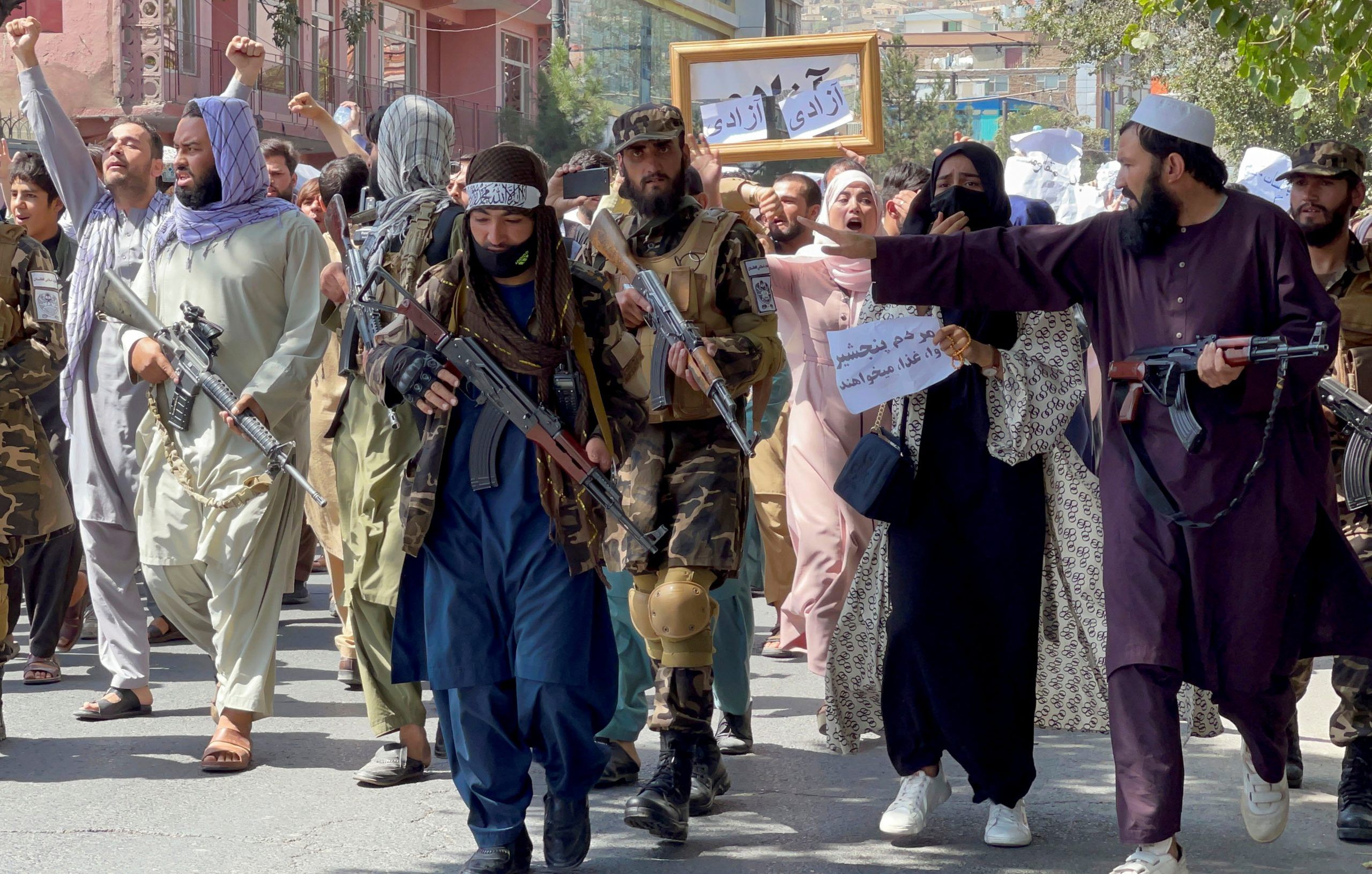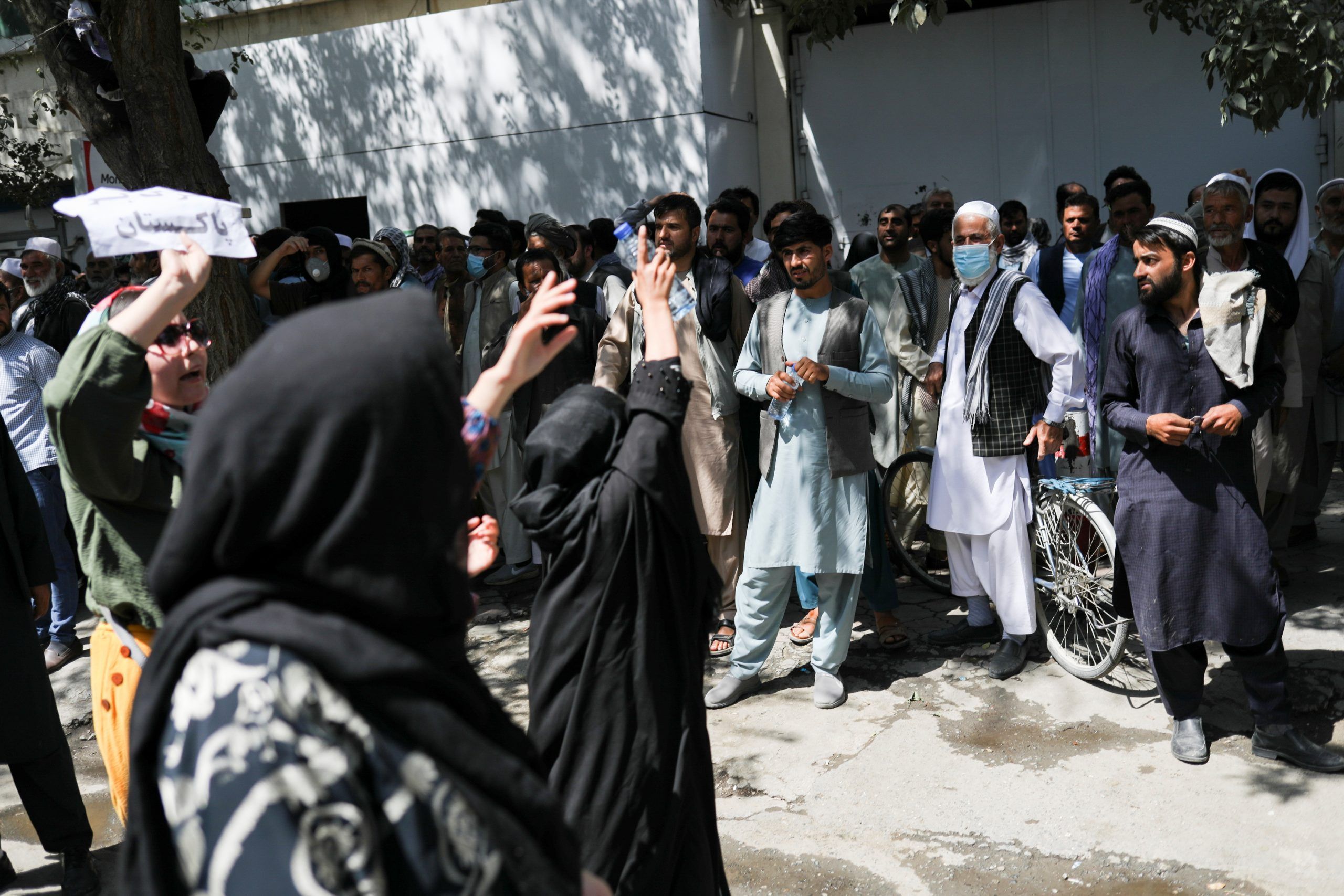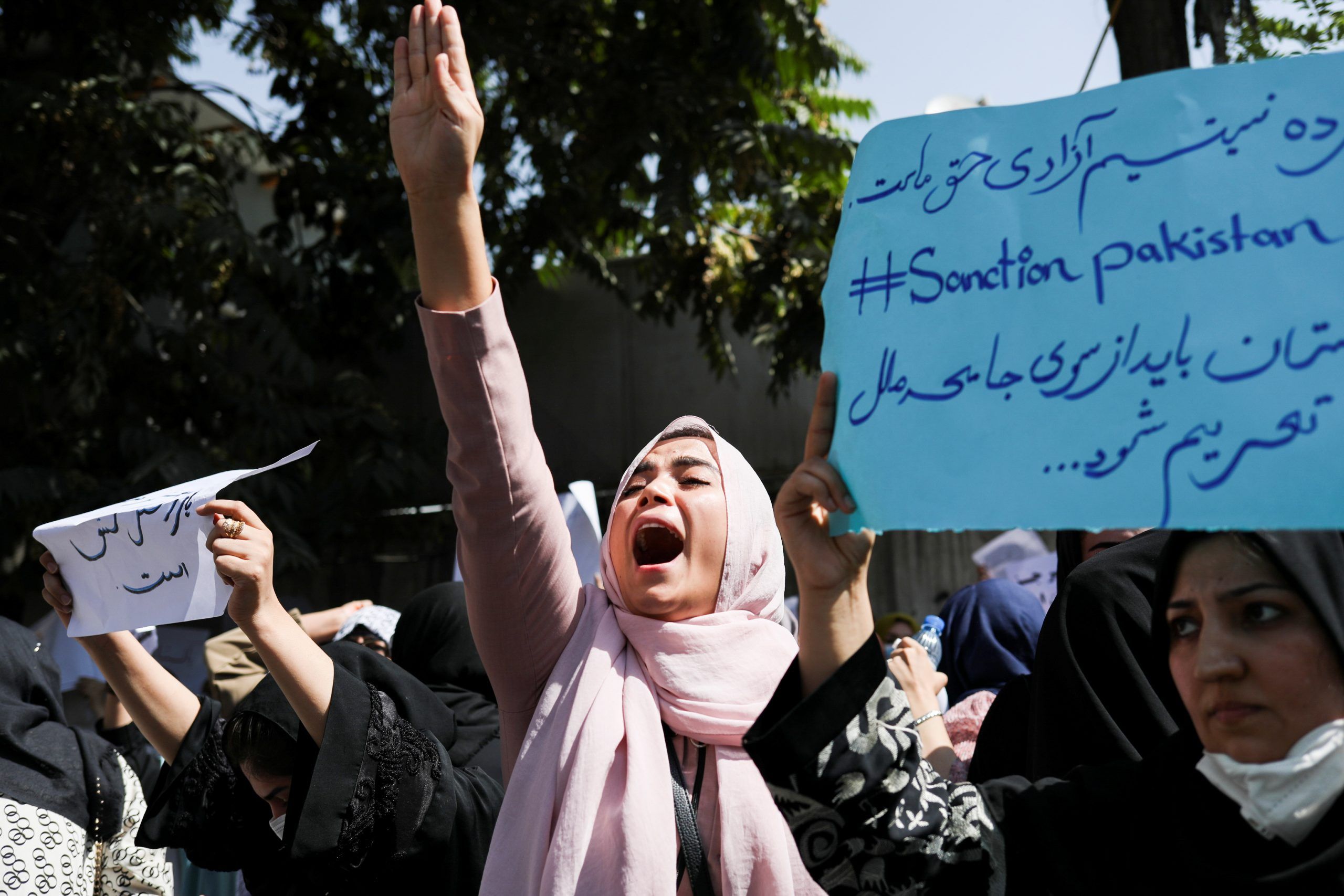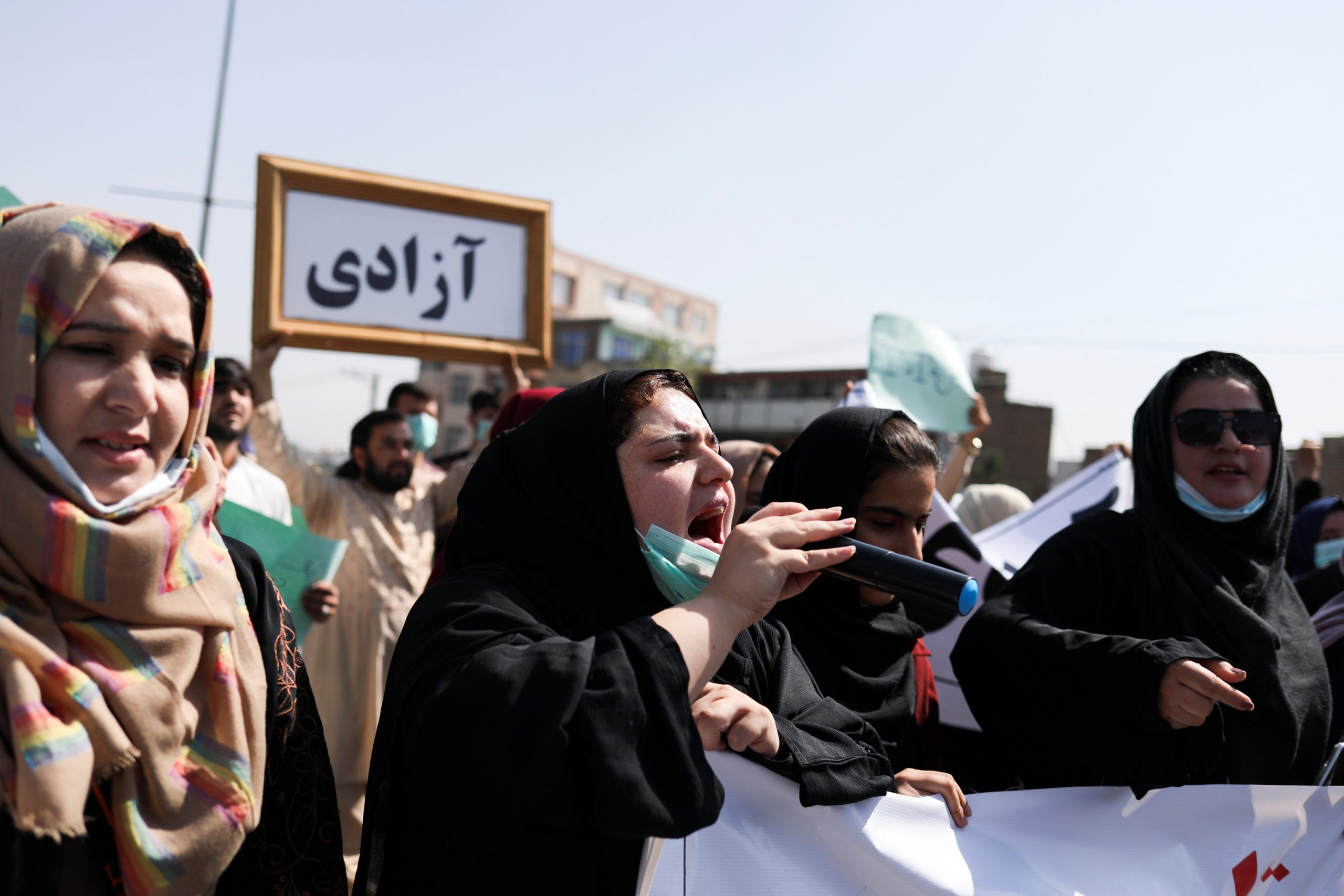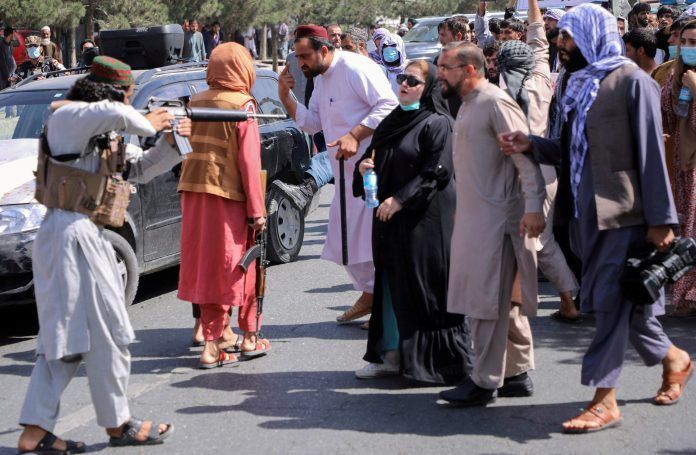
Dr. Abdul Latif Pedram, writer, poet, a former member of the Afghan Parliament, and the National Congress Party of Afghanistan leader is a campaigner against Taliban rule.
The Islamist group Taliban rapidly took over Afghanistan on Aug. 15, after a hasty withdrawal of the U.S. forces and the collapse of the Western-backed government of President Ashraf Ghani, who fled the country shortly before the fall of the capital
Kabul.On Sep. 7, the Taliban announced an all-male interim government that included former Guantanamo inmates and others on the United Nations sanctions list.
Although not independently confirmed, the Taliban also declared victory last week over the province of Panjshir, northeast of Kabul, the last pocket of territory which had remained outside their control.
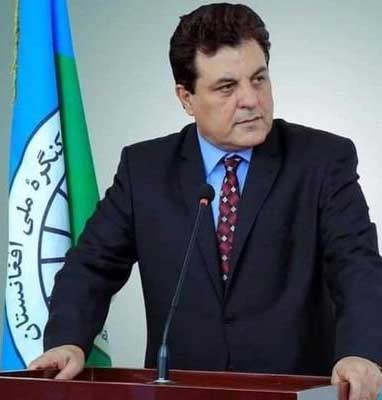
Panjshir is the base of operation of Ahmad Massoud, the leader of the National Resistance Front of Afghanistan (NRF), also known as Panjshir Resistance. Mr. Massoud is the son of the late Ahmad Shah Massoud, a powerful guerrilla commander during the resistance against the Soviet occupation between 1979 and 1989.
Speaking to Kayhan Life about why Panjshir has become the base for the NRF, Pedram said: “Panjshir is a valley that stretches for 160 kilometers. It contains 90 to 92 small and large valleys. It is a hard-to-reach strategic mountainous region. There are many small and large villages in the valley, some of which are pro-Taliban, but others are sanctuaries for NRF forces and paramilitary resistance groups.”
“According to the information I have received, some invading forces and aggressors had moved from Pashtun regions and Kandahar to the Panjshir Province. They got scared and left the valley,” Pedram noted. “A small Taliban force, mostly ethnic Tajiks, has remained in the valley. They believe no harm would come to them because they are ethnic Tajiks.”
“Therefore, the conditions are favorable in Panjshir, meaning the Taliban cannot take control of the valley,” Pedram argued. “It gives us an extraordinary military advantage. Paramilitary and NRF fighters are in the valley, meaning they will take control of Panjshir.”
The NRF forces in Panjshir are part of a broader Afghan resistance to the Taliban rule. According to Pedram, people across Afghanistan say “no” to the Taliban rule, particularly in large cities. He considers the NRF as part of a broader political protest.
The armed resistance in Panjshir Province has coincided with anti-Taliban protests in several major Afghan cities, including Kabul, Herat, and Mazar-e Sharif.
Enormous crowds of men and women marched in the streets, saying “no” to the Taliban rule. People of Afghanistan remember the medieval and despotic rule of the Taliban between 1996 and 2001, which oppressed its people and turned the country into a haven for radical Islamist terror groups, including Al-Qaeda.
Afghan women have played a significant role in the recent protests in the country. On Sept. 9, dozens of women in Kabul and the north-eastern Afghan province of Badakhshan protested against forming an all-male interim Taliban government to rule Afghanistan.
“Fortunately, widespread protests have started against the Taliban rule in many large cities across Afghanistan,” Pedram noted. “Thousands of people have been protesting in Kabul to support freedom and democracy against the Taliban rule and Pakistan. The fearless protesters demand a republic and not a Taliban emirate.”
Pedram highlighted the significant role of women in recent protests, which was conspicuously absent when the Taliban ruled Afghanistan in the 1990s.
“They [the Taliban] had so much power that no one dared to leave their home. However, people are out in force these days, especially women who have been leading the fight,” Pedram noted. “Civil rights activists and people are at the forefront of the battle. The movement against the Taliban is growing and broadening in size and scope. It is a democratic and hopeful movement supported by an armed group. We could soon see a nationwide popular and armed uprising in Afghanistan.”
The international media have been reporting on the Taliban’s complete control over Afghanistan. Also, a few countries have either recognized or offered support to the Taliban, most notably Turkey, Pakistan, China, and Qatar. However, Pedram believes that the popular uprising and armed resistance will topple the Taliban eventually.
“The situation is very positive. We are not worried,” Pedram declared. “We have been fighting similar wars for the past 40 years and know our destiny. The Taliban cannot control Afghanistan. They are facing many problems. There is rampant corruption within the group. Some of them invade people’s homes and take their belongings and food by force. Normally, after a coup, the forces regroup to form a central government and a military force. However, the Taliban depend on people for their basic daily needs.”
“People are fed up with the Taliban and their lies. They know nothing about Islam or democracy,” Pedram explained. “They go to people’s homes demanding to be fed. People of Afghanistan are forced to support the group. I believe they will be forced out of power sooner than we think and will most likely move to the country’s south. The situation will not remain the same for long.”
Pedram believes the armed resistance in Panjshir, popular uprising, and widespread protests by intellectuals, university students, artists, and political activists will defeat the Taliban ultimately, even though the group has been officially recognized by Qatar and Pakistan and has received diplomatic support from China and Turkey.
“Afghanistan has a large population, which has experienced many wars throughout history,” Pedram noted. “The British were here [1839-42], then the Soviets [1979-89], and the first Taliban invasion [1996-2001], supported by many countries and other international forces. Pakistan, Qatar, the United Arab Emirates (UAE), Britain, and the U.S. played a role in the first invasion. However, none has succeeded. They have not been strong enough to succeed.”
“Pakistan cannot occupy Afghanistan, or even help them [the Taliban],” Pedram argued. “Also, the U.S. controls Qatar. Afghan people have experienced many events and will ultimately triumph. Fortunately, everyone has said ‘no’ to the Taliban this time round. While the Taliban can fight, they have no power in the streets. Having a gun does not make a person powerful.”
“There are many people who are in the fight, including women, artists, poets, writers, ordinary people, and devout Muslims who respect traditions,” Pedram said. “They all oppose the Taliban. I do not believe Pakistan is more powerful than the former Soviet Union. Any power that hopes to invade and occupy Afghanistan will be defeated. They [the Taliban] will also fail.”
Iranian and Afghan Campaigners Call On UN to Protect Women’s Rights in Afghanistan
Asked if the NRF was engaged in international diplomacy to gain support, Pedram said: “Any movement, including the NRF in Afghanistan, and those in other countries, need the support of enlightened and progressive people, who can energize, mobilize and defend these efforts in all those countries. Undoubtedly, the NRF is in contact with countries in Asia, Central Asia, the international community, and the world powers, urging them not to recognize the Taliban. There are global efforts to gain support for the NRF.”
Asked about the hasty withdrawal of the U.S. military and actions by US President Joe Biden’s administration, which enabled the Taliban’s speedy takeover of Afghanistan, Pedram said: “I recall comments by the Cambodian prince [Norodom Sihanouk] when the country was under a socialist system, who said his nation’s biggest mistake was to trust the U.S. I believe it was also Afghans’ biggest mistake to trust Americans. I can cite many instances of the U.S. abandoning its allies, most notably the late Mohammad Reza Shah [Pahlavi] of Iran.”
“[Look at] how they [the U.S.] have treated their forces and guards. They protect their interests. The U.S. betrayed the Afghan people,” Pedram said. “They did not even honor their strategic commitment to inform their lackeys, including [President Ashraf] Ghani, two years before leaving the country. Joe Biden’s government lied and left the people of Afghanistan to bleed, burn and die.”
“Naturally, America has been one of the principal actors in the war in Afghanistan for the past 30 or 40 years, from the rule of [Mohammad] Daoud [Khan, prime minister from 1953 to 1963] through the [People’s] Democratic Party [of Afghanistan (PDPA), a Marxist-Leninist political party],” Pedram said. “Subsequently, they [the U.S.] escalated the war, destroying Afghan society and culture and causing poverty and high unemployment. Some 80 percent of people are unemployed. They enabled the Taliban to impose a medieval system on the country, and are training Daesh [ISIS] again, so the Taliban can use them at some point. They have committed step-by-step treachery.”
Asked about the NRF’s contradictory messaging and inability to release information, Pedram said: “The U.S.-sponsored Ghani government betrayed Afghan people. As a result, the nation faced an extraordinary situation. A massive wave hit the NFR. Naturally, we must organize our efforts. There are major messaging problems with executing a war, commanding militias, communicating, and releasing news. We are trying to address these issues.”
“Fortunately, news outlets such as yours, human rights, and international organizations will report on the issues and disseminate correct information,” Pedram added. “International public opinion is critical to us at this historical juncture. We will address these issues.”
Afghanistan: What the Conflict Means for the Global Heroin Trade

